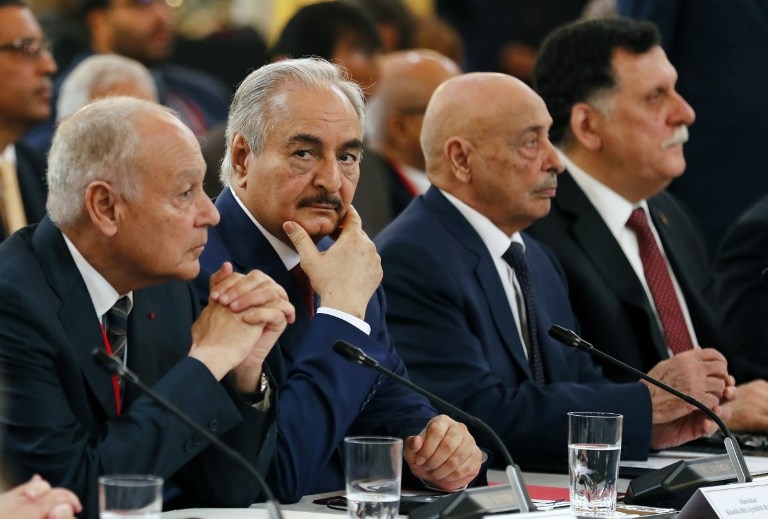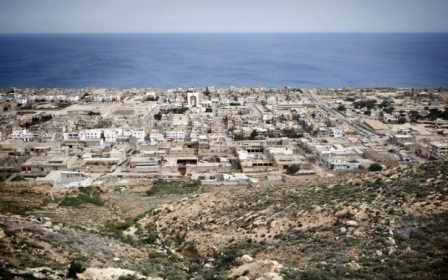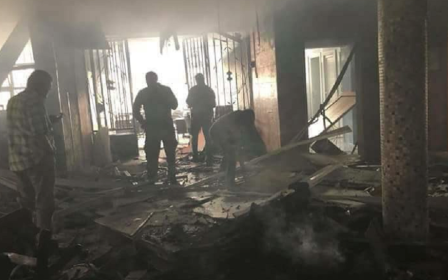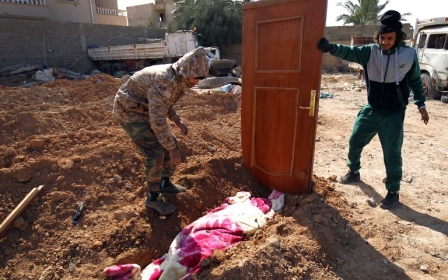Libyan rivals agree December elections despite continuing violence

Libyan rival factions agreed on Tuesday to hold elections on 10 December. The agreement was made at a Paris meeting called by the French president Emmanuel Macron.
An adviser to UN-recognised Libyan prime minister Fayez al-Serraj said the agreement included the finalisation of a constitution by 16 September.
Serraj, eastern-based military commander Khalifa Haftar and the heads of two parliamentary assemblies attended the talks.
"The parties have committed to set the constitutional basis for elections and adopt the necessary electoral laws by 16 September and hold parliamentary and presidential elections on 10 December," an eight-point joint statement read.
"Against the backdrop of a Libyan-owned process and the full engagement of all Libyan parties involved, we committed... to work constructively with the UN to realise credible and peaceful elections as soon as possible and to respect the results of these elections when they occur."
Macron said the agreement was "an essential step toward reconciliation" in the country.
Speaking at a news conference, Serraj said: "Nobody says it will be a path layered with roses. The challenges exist and will continue to grow."
"Last month there was a terrorist attack and there are a certain number of enemies to this democratic process," he added.
The talks came just weeks after at least 12 people were killed in an attack on the offices of the Libyan electoral commission in Tripoli.
The meeting also included representatives of a number of other countries, including all of Libya’s six north African neighbours, Italy, Germany, Qatar, the UAE and the remaining four permanent UN Security Council members.
Libya has been riddled with instability since February 2011 protests which led to the toppling of long-time ruler Muammar Gaddafi, with rival militias clashing over territory and resources since the region-wide uprisings, leaving the country with two rival governments, each vying for more control.
Haftar is aligned with the eastern-based House of Representatives, which opposes the UN-backed Government of National Accord (GNA) in the western capital city, Tripoli. Haftar has repeatedly issued threats that his forces would soon take over Tripoli.
Haftar has enjoyed support from France, Egypt, the UAE and Russia. France has provided Haftar with military support by deploying advisers and special forces to the east of the country.
Haftar presses Derna assault
While the meeting took place in Paris, forces loyal to Haftar continued their assault on Derna, a city in the east of the country that they have had under siege since 2016, with around 150,000 residents caught in the crossfire.
UNSMIL's humanitarian coordinator said on Thursday that aid workers have been denied access to the city to deliver life-saving assistance and basic supplies, including medicine and food, and demanded that they are allowed to enter immediately.
Haftar and his forces have been accused of war crimes for operations carried out in the east of the country, in areas controlled by Haftar.
An ICC warrant was issued in September last year for a member of an elite force of Haftar’s so-called Libyan National Army (LNA), and calls for him to be handed over to the court have been repeatedly ignored.
Past attempts at peace deals in the country have not led to progress in solving the conflict. Some analysts see this round of talks as an attempt by those backing Haftar, including France and the UAE, to promote Haftar’s takeover in the country through a rushed election.
Human Rights Watch warned last month against rushing the country into elections, saying that it is too violent and authorities cannot guarantee freedom of assembly or free speech essential for a vote.
"Libya today couldn't be further away from respect for the rule of law and human rights, let alone from acceptable conditions for free elections," said Eric Goldstein, deputy Middle East and North Africa director for the rights group.
"The authorities need to be able to guarantee freedom of assembly, association and speech to anyone participating in the elections," he said in a statement.
The declaration was not signed as planned originally as not all parties recognise each other's legitimacy. However, it was agreed in principle.
The eight-point document includes a call for the immediate unification of the central bank and makes a commitment to support the creation of a national army.
Additional reporting from AFP and Reuters
New MEE newsletter: Jerusalem Dispatch
Sign up to get the latest insights and analysis on Israel-Palestine, alongside Turkey Unpacked and other MEE newsletters
Middle East Eye delivers independent and unrivalled coverage and analysis of the Middle East, North Africa and beyond. To learn more about republishing this content and the associated fees, please fill out this form. More about MEE can be found here.




